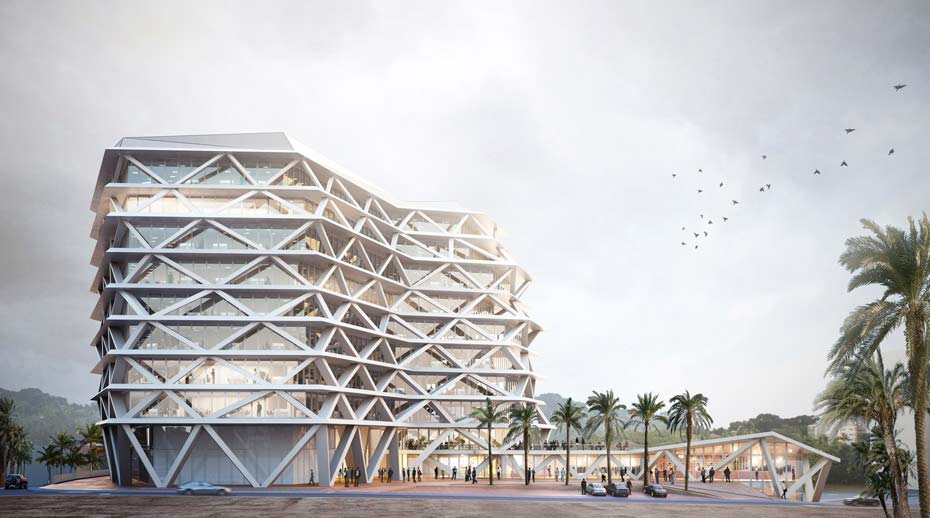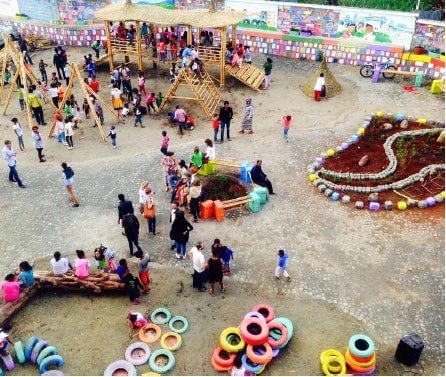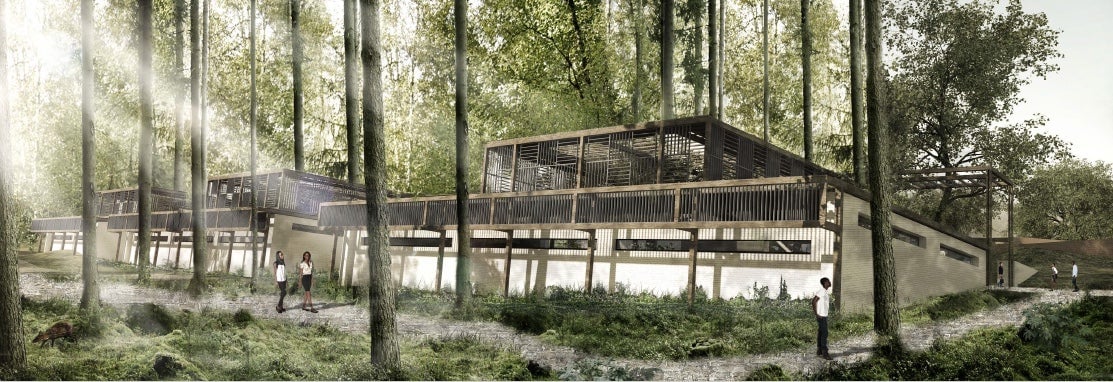Groundbreaking African architecture is shedding a colonial past and identifying its own aesthetic
The first Africa Architecture Awards will be held this month. It’s easy to be cynical about handing out trophies when so much development still needs to happen on the continent. Still, judging by the shortlist, the awards could help to identify what a uniquely African aesthetic is, while also highlighting the importance of incorporating environmental requirements and cultural identity. If anything, it’s also a welcome celebration of leaving behind colonial-era building.


The first Africa Architecture Awards will be held this month. It’s easy to be cynical about handing out trophies when so much development still needs to happen on the continent. Still, judging by the shortlist, the awards could help to identify what a uniquely African aesthetic is, while also highlighting the importance of incorporating environmental requirements and cultural identity. If anything, it’s also a welcome celebration of leaving behind colonial-era building.
The shortlist includes One Airport Square in Accra, which houses banks and offices. The building’s façade is inspired by the bark of a palm tree and is designed to make the most of Ghana’s vertical sunshine patterns.
The Out of the Box playground in Addis Ababa literally includes its main users, children, who were involved in brainstorming and painting the bamboo beams and recycled tires.

By launching an African architectural showcase, the organizers hope that the recognition the awards will come with will encourage architects to acknowledge the continent’s history, while at the same time looking for new innovations to bring that heritage into the 21st century.
“Foreigners think that Africa is about motifs and craft,” said Phill Mashabane, a well-known South African architect and the awards’ ambassador. “But in truth, African architecture is about the use of space and the hierarchy of spatial arrangement, the culture of usage and identity.”
The Dakar Congress Center, designed by Tabanlioglu Architects entered into the built category, draws meaning from the cultural significance of the baobab tree as a meeting place and its longevity in its habitat. The center, which hosts the Francophone Assembly, is built on the coast and incorporates water and bridges as passageways.
“Local people take their knowledge for granted—it’s part of their daily lives,” he added. “It takes foreign scholars unpacking this knowledge to motivate discussions around whether these interpretations are correct or not.”
That knowledge isn’t always ancient, as the Beyond Entropy Angola project shows. Entered into the speculative category, which is “promote imaginative responses to African realities,” the project tries to build on the innate yet overlooked intelligence of Luanda’s rapid and unplanned urban sprawl. Curators Paula Nascimento and Stefano Rabolli Pansera looked at how residents have created their own solutions to urbanization that could create an unexplored path for development.
Embracing African architecture could also bring a shift in the market. With Africans as the end-user occupying these spaces, the continent’s resources will no longer be viewed as part of a manufacturing chain, but could dictate the product itself. This could also encourage design professionals to look to materials they’ve ignored until now.

The New Sight Eye Hospital, also entered into the speculative category, incorporates a hospital into the Congolese forest, rather than clearing a path. Designed by Geyser Hahn Architects and Boogertman and Partners, the eye hospital in Congo Brazzaville will treat patients suffering from river blindness. The building unobtrusively makes use of indirect light filtering through the trees and planted courtyards.
Despite its focus on homegrown aesthetic, many of the architectural firms nominated are, however, based in Europe. Backed by the French construction multinational Saint-Gobain, the overall winner will receive $10,000. The awards ceremony will be held at the Zeitz Museum of Contemporary Art Africa in Cape Town, South Africa on Sept. 28.